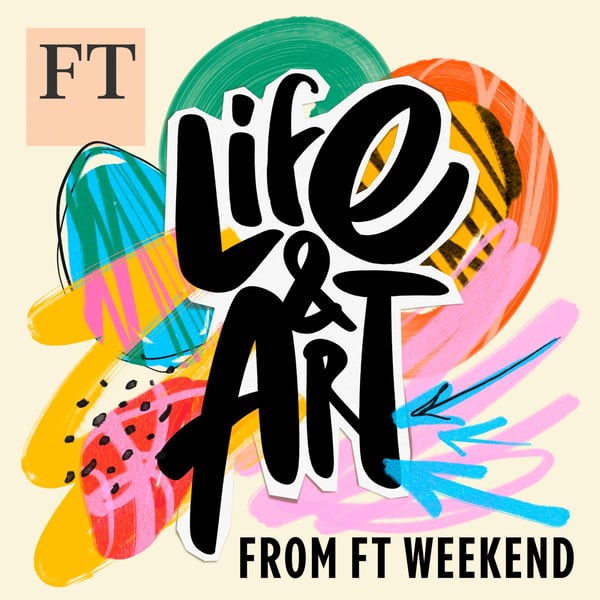Who's afraid of Ai Weiwei? The Chinese dissident artist on what makes a powerful protest
Life and Art from FT Weekend
Forhecz Topher
4.6 • 601 Ratings
🗓️ 23 October 2020
⏱️ 43 minutes
🧾️ Download transcript
Summary
After a summer defined by protest, we invite on Ai Weiwei, one of the most influential artists and activists of our time, to discuss whether we've changed. Weiwei describes how to protest creatively and powerfully ("you only see your power from your enemy's eye"), the symbolic meaning of this pandemic, and his view on the state of humanity. Plus: FT arts editor Jan Dalley joins Lilah to unpack the conversation and consider where art is going.
Links from the episode:
—Circa 2020 on Instagram. They're raising money for struggling UK artists with a £100 Ai Weiwei print here through October
—Watch Human Flow on Amazon Prime or here
—Watch Coronation, Ai Weiwei's most recent documentary, which compiled secret footage of Wuhan during the peak of the Covid crisis, on Vimeo
—13 Ai Weiwei works to know (Royal Academy of Arts)
—FT piece on the best new operas online (paywall)
—Jan Dalley's review of the art world in the 2010s
Clip credit: AT SEA consists of footage filmed by Ai Weiwei during the making of “Human Flow” in 2016. Since 2015, hundreds of thousands of refugees have attempted the dangerous sea journey trying to reach Europe. Alongside these scenes are shots of physical barriers erected across Europe, the cold response to the plea for safety and shelter from the world’s most vulnerable. Video edited by: Autumn Rin Quotes: The border is not in Lesbos, it is in our minds and in our hearts. – Ai Weiwei, Chinese artist (b. 1957) Music Credit: Karsten Fundal
Hosted on Acast. See acast.com/privacy for more information.
Transcript
Click on a timestamp to play from that location
| 0:00.0 | Hello, you're listening to Culture Call, the Life and Arts podcast from the Financial Times. |
| 0:06.4 | I'm Lila Raptopoulos, an editor in New York. Coming up on today's show. |
| 0:11.6 | You have to make a beautiful fight. A fight should not be just cry, not just begging for |
| 0:18.7 | pity or somebody to have sympathy on you, but rather to stand a much higher |
| 0:25.4 | moral ground to say, hey, you know, you really have an enemy, that's me. |
| 0:33.4 | Protest in a democratic society has a completely different place from protest in a non-democratic society. |
| 0:42.6 | The Chinese activists really put their lives on the line to stand up against the state because they can lose everything. As you may remember from our last episode, I'm doing something slightly different this season. |
| 1:02.9 | It's laid out in detail at the start of episode one with Miranda July. But the crux is this. |
| 1:08.1 | My co-host, Griselda Murray Brown, who I miss very much, is on maternity leave, |
| 1:12.4 | and the world is in flux, and we don't know where we'll end up. So I'm on a six-episode exploration |
| 1:18.7 | of one big question. What's possible now that would have seemed impossible before? What has |
| 1:24.6 | this pandemic broken open that can't be undone? |
| 1:30.2 | Right now it really feels like we have a unique chance to reimagine. |
| 1:35.1 | So this season, I'm inviting big cultural thinkers on to explore that question with me. |
| 1:41.5 | I'm also exploring it with my brilliant Financial Times Life and Arts colleagues, and I'm exploring it with you. |
| 1:43.9 | And today, I'm going big. |
| 1:45.8 | My guest is I Weiwei. |
| 1:50.8 | Iiwei is 63 now, and his name is almost an institution. |
| 1:54.6 | This is China's most famous artist. |
| 1:57.2 | He is one of the world's great living artists, |
| 2:02.2 | and he will likely be remembered as one of the most influential activists of our time. |
| 2:06.8 | I met with him officially because he's promoting his latest art installation. |
... |
Please login to see the full transcript.
Disclaimer: The podcast and artwork embedded on this page are from Forhecz Topher, and are the property of its owner and not affiliated with or endorsed by Tapesearch.
Generated transcripts are the property of Forhecz Topher and are distributed freely under the Fair Use doctrine. Transcripts generated by Tapesearch are not guaranteed to be accurate.
Copyright © Tapesearch 2025.

